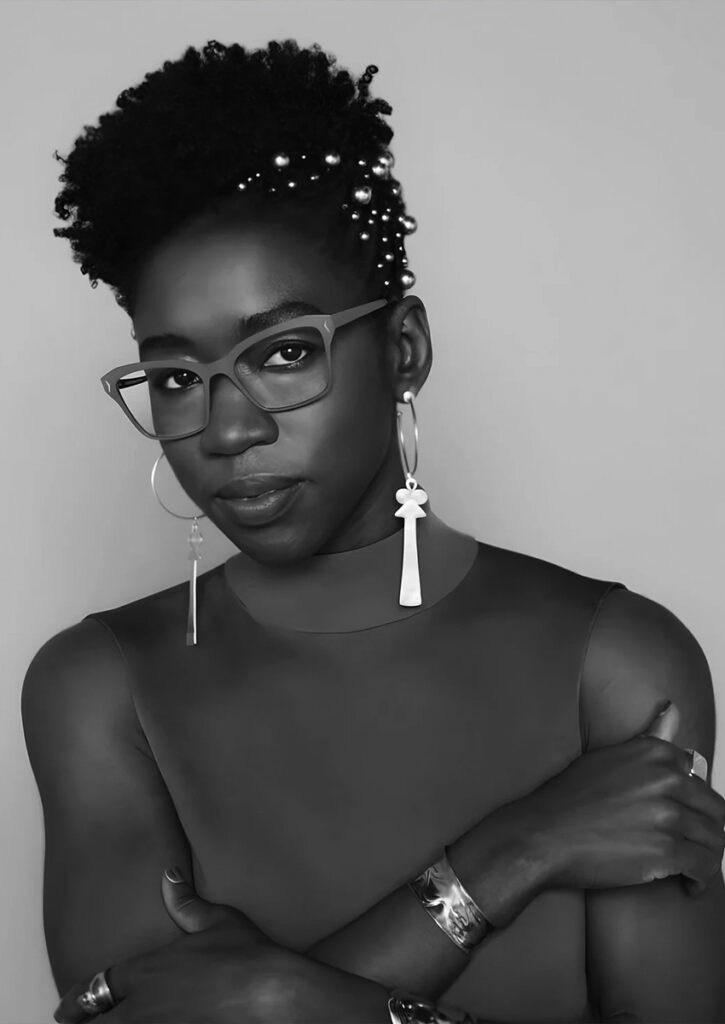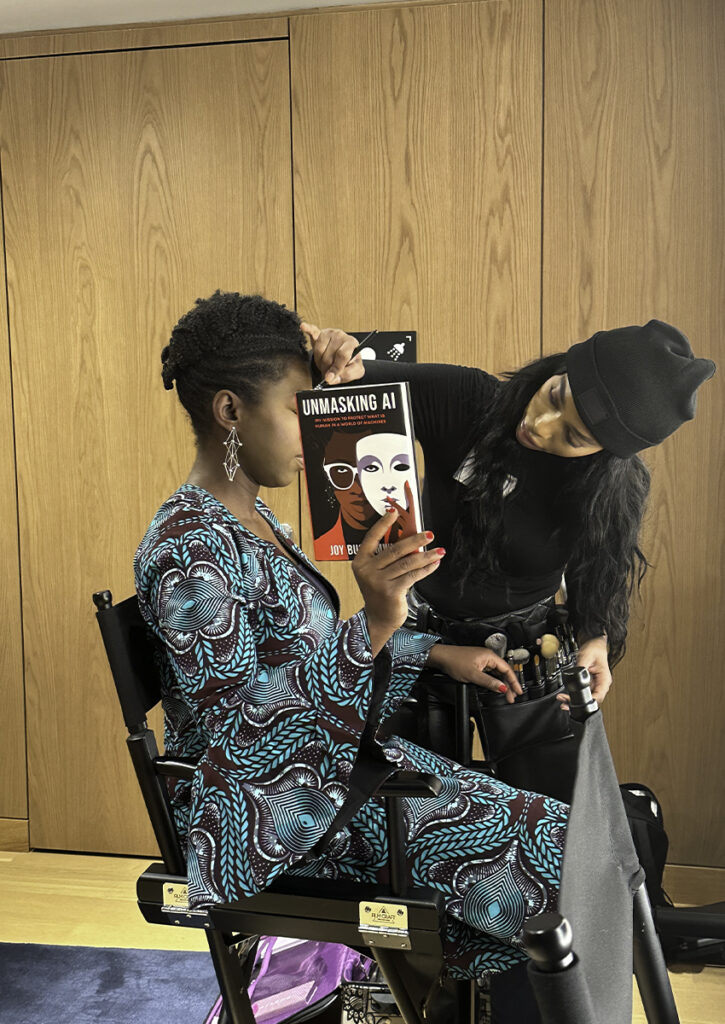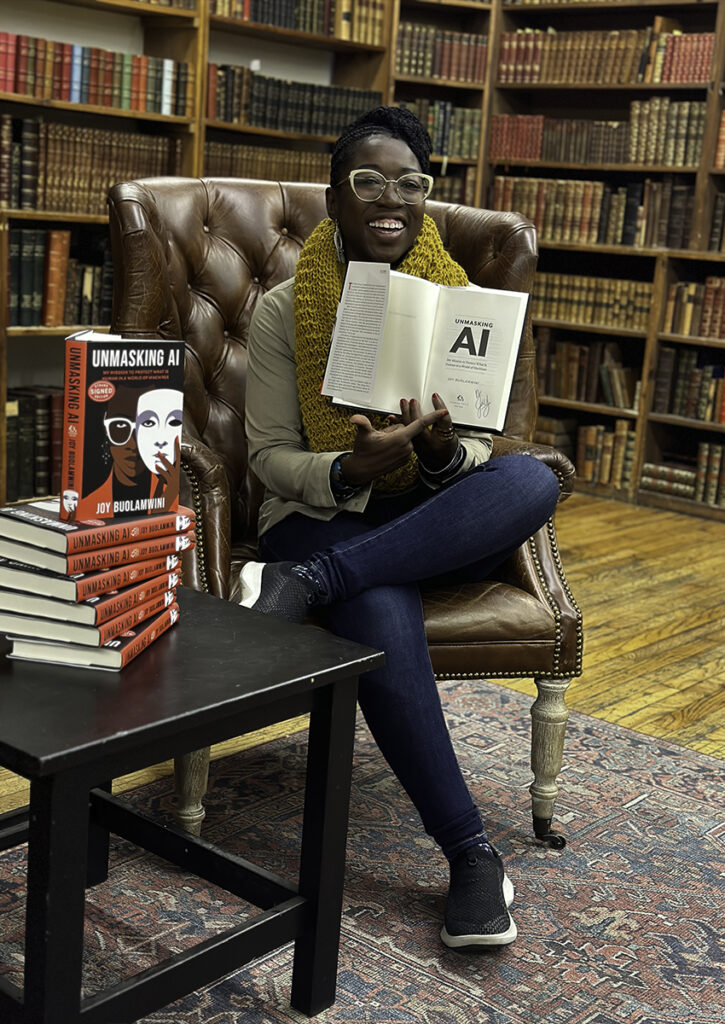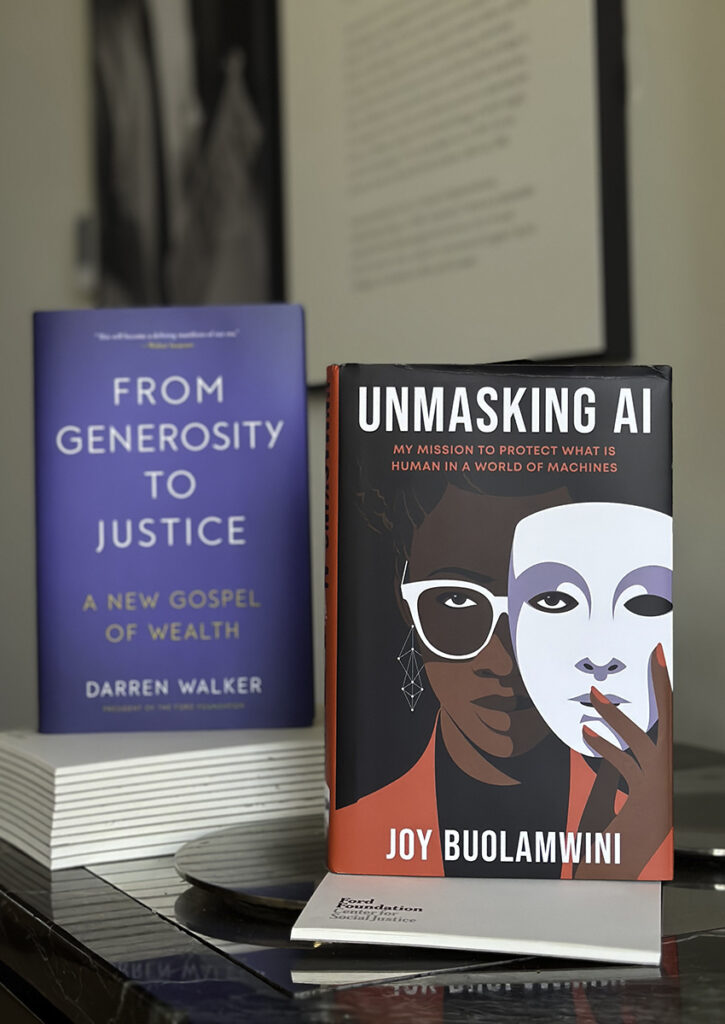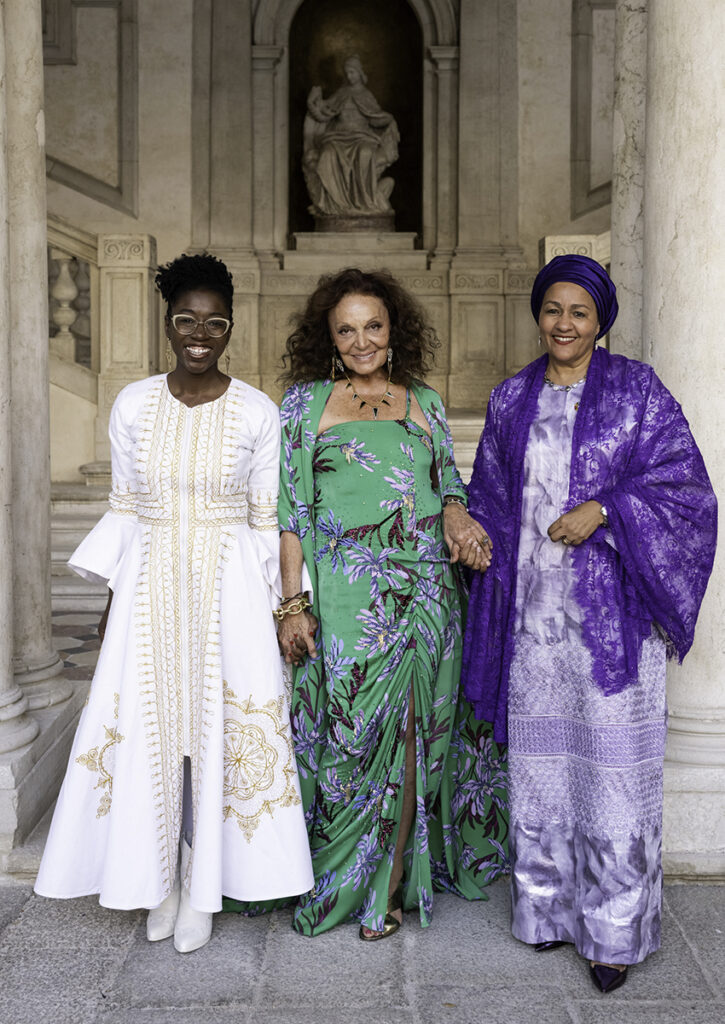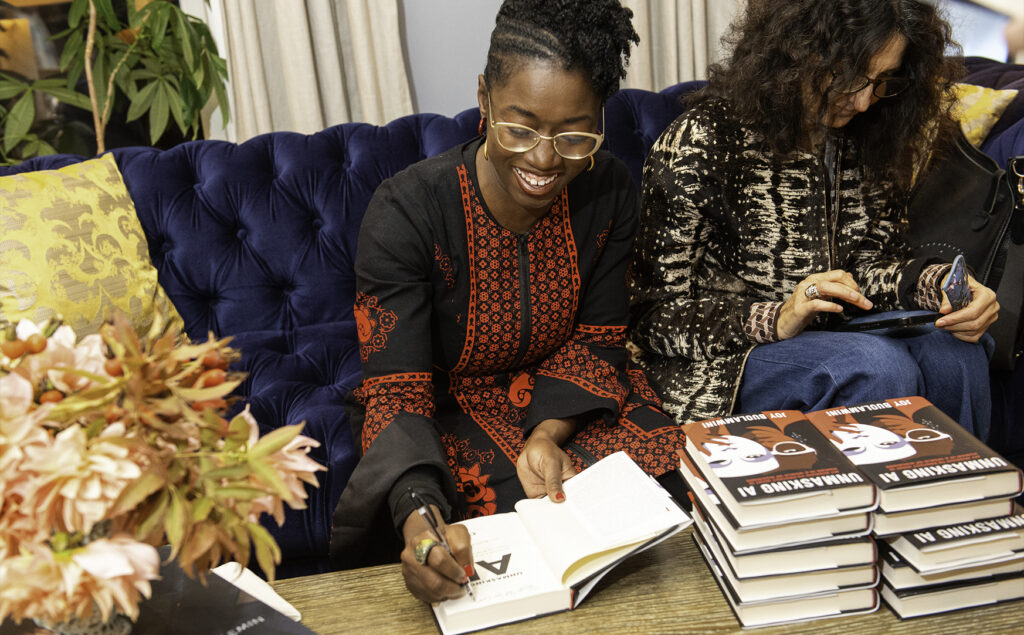Dr. Joy Buolamwini has become one of the most recognized and important voices in tech. In 2023, the Diane Von Furstenberg (DVF) Leadership Award recipient, was named by TIME as one of the 100 Most Influential People in AI. Prior to that, in 2020 she became the first Black researcher to grace the cover of Fast Company—rightfully so, as her credentials and accomplishments are extensive.
From founding the Algorithmic Justice League and writing a bestselling book, Unmasking AI: My Mission to Protect What Is Human in a World of Machines, to her viral TED Talk and sharing her expertise in the Netflix documentary, Coded Bias, Buolamwini is a force reshaping the landscape of artificial intelligence (AI). Her work is not only impressive, it’s imperative. Still, despite that being the case, she didn’t initially set out to do advocacy work. It happened accidentally.
Buolamwini refers to herself as a poet of code, as she uses art and research to illuminate the social implications of AI. As the daughter of a visual artist and a professor of medicinal chemistry and pharmaceutical science, Buolamwini didn’t have to look far for inspiration or representation growing up.
“When I was a toddler, my dad would take me to his science lab and I would do things like, feed cancer cells,” she said. “I grew up with computers all over the house, so I always felt that STEM was open to me and something that I could pursue.”
Her work began to expand beyond STEM during her time as a graduate student at MIT (Massachusetts Institute of Technology). That’s when she discovered the facial recognition software program she was working on couldn’t detect her dark skin. Once she put on a white mask, the software was able to register her presence. That research was the inspirational catalyst for much of her work that followed.
“I had done research, testing AI systems for big tech companies like IBM and Microsoft, and I saw that when it came to facial analysis, particularly guessing the gender of a face, they all performed worse on women with dark skin. When I saw that, and I had the performance metrics to back it up, I thought, ‘how do I make this feel like something people can relate to beyond a chart, beyond a research paper? How do I move from performance metrics to performance arts?’,” said Buolamwini.
That was where the idea to write her powerful poem, “AI, Ain’t I a Woman?” came from. “This is more than a research project. This is talking about tools that are going to shape our lives, and if we’re seeing these types of issues, what other harms are lurking?”
As she sought out to illuminate these issues and biases in AI, Buolamwini went on to create the Algorithmic Justice League— an organization gathering people to address the issues that were, and still are, emerging. “It occurred to me that it would be good for me to do this work with other people and also potentially good for society to have organizations that were specifically focusing on this kind of emerging harm. AI harms that weren’t necessarily getting mainstream attention,” she said.
For many people, AI is an abstract term that they’ve heard of, but might not necessarily understand. Despite any uncertainty, from law enforcement to the beauty industry, AI is being used across industries to access information—making it one of the most powerful tools in our present-day society. “I truly believe if you have a face, you have a place in the conversation. Whether you come at it from beauty, employment, housing, or healthcare—wherever it is you come from in terms of starting to understand these systems, those are valid entry points.”
That’s something that Olay had in mind when they reached out to Buolamwini for their “Decode the Bias” campaign, which aimed to raise awareness of the many biases hidden within AI. “I think in society, when we look at beauty standards, however they’re imposed on us, whether it’s through advertising or search results, it shows who is worthy. When I speak of this notion of the ‘coded gaze,’ which builds on notions of the male gaze and the white gaze, all of those gazes have certainly impacted the beauty landscape. We see Eurocentric features tend to be most celebrated in the media and also tend to be what is elevated by AI systems,” she said. “For me, this was an entry point into reaching a different type of audience to talk about AI bias. Whether it’s a filter that lightens your skin or narrows your nose, which is saying that is what beauty looks like.”
As a Black woman in a predominantly white and male space, Buolamwini is using her perspective and voice to not only advocate for women and people of color, she’s making AI more tangible and accessible to folks from all backgrounds through her work and the ways in which she communicates her findings. “That’s part of why AJL exists. I saw so many of these important conversations happening in narrow spaces. Not everyone’s going to go to grad school, or be in policy circles, or have access to various halls of power—people might not even want to be there, even if they had that access,” she said. “It can look, feel, and be very insular. It’s like, there’s this club with people with technical knowledge and they’re the only ones that get to debate and decide the future of this. I’m saying, no. Technology, that shapes all of us, requires all of us.”
